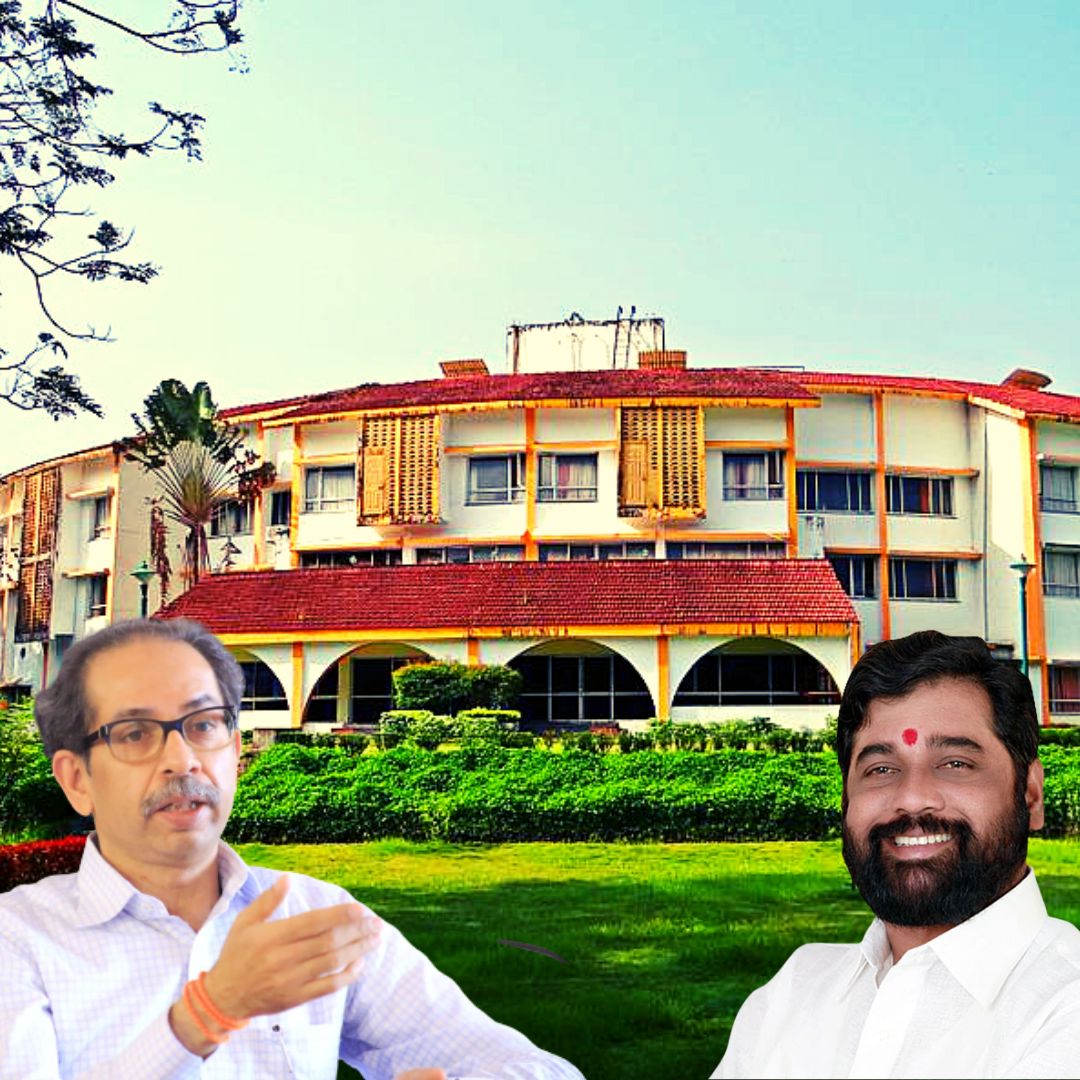
Picture Credit: Twitter/ Uddhav Thackeray, Wikimedia, Pixabay
'Resort Politics': Not New For India, Looking Back At Similar Political Crisis That Happened In The Past
Writer: Ronit Kumar Singh
A confident and reliable journalist who always desires to toss the unheard voices. I cover politics and governance extensively through stories.
India, 24 Jun 2022 8:48 AM GMT | Updated 24 Jun 2022 8:53 AM GMT
Editor : Snehadri Sarkar |
While he is a massive sports fanatic, his interest also lies in mainstream news and nitpicking trending and less talked about everyday issues.
Creatives : Ronit Kumar Singh
A confident and reliable journalist who always desires to toss the unheard voices. I cover politics and governance extensively through stories.
'Resort Politics' is the measure a political party takes to ensure that they hold support from elected representatives. The brewing political crisis in Maharashtra has once again brought the 'Resort Politics' idea into the highlight.
With the ongoing political crisis in Maharashtra, the idea of 'Resort Politics' has again started collecting headlines. The Shiv Sena's rebel Eknath Shinde seems to have two-thirds of the party's MLAs in support, which can collapse the state's Maha Vikas Aghadi (MVA) government. Earlier this week, the Shiv Sena MLA Shinde took the party's elected representative to a resort in Gujarat and later shifted to Assam. This has led to political turmoil in Maharashtra, threatening the present government. As Shinde claims, he now has the support of over 47 MLAs which is a sufficient number to damage the stability of the current government.
To form a government in Maharashtra, a political party needs at least 144 seats alone or in an alliance. Currently, the Bharatiya Janata Party (BJP) led National Democratic Alliance (NDA) has 113 seats, whereas Shiv Sena, Nationalist Congress Party (NCP), and Congress have 55, 53, and 44 seats, respectively. MLA Shinde's claim of having support from over 47 MLAs is a clear danger. He took all his supporters to a resort in Guwahati, Assam, to ensure that the Maharashtra government fails the floor test whenever it happens. Similar 'Resort Politics' have occurred in the past in a state of Gujarat, Karnataka, Bihar, Haryana, and Uttar Pradesh.
Haryana
In 1982, the state witnessed a hung assembly after the state legislative election. Out of the total of 92 seats, Indian National Lok Dal (INLD) and BJP coalition managed to win 37 seats, whereas Congress secured 36 seats. The governor, despite knowing the fact, invited Congress to make the government. Devi Lal, a leader of the INLD-BJP alliance, camped at a resort in New Delhi with nearly 40 MLAs. After which, one MLA escaped from the resort, and Devi Lal couldn't prove the majority. Later, Congress made the government in the state.
Karnataka
The state of Karnataka has always been a highlight for its nature of resort politics. In 1983, the then Chief Minister Ramkrishna Hegde had to save his government from getting dissolved by Indira Gandhi. In the assembly floor test, over 80 MLAs were sent to the luxury resort on the outskirts of Bengaluru. Later, CM Hegde proved his majority, and the government sustained. A similar incident occurred in 2019 when 13 and 3 MLAs of Congress and Janata Dal-Secular (JDS) resigned. The Congress, JD(S), and BJP later shifted their MLAs to a resort. Following this BJP overpowered the opposition and formed its government.
Gujarat
In 1995, Shankersinh Vaghela challenged the then Chief Minister of Gujarat with 47 MLAs in his grip. He took all the MLAs to a high-end resort in Madhya Pradesh's Khajuraho. Upon his return to Gujarat, he formed the government with the support of his MLAs and Congress and became the 12th Chief Minister of State.
Uttar Pradesh
In 1998, the governor of Uttar Pradesh dissolved the Kalyan Singh-led BJP government. Within 48 hours, Congress leader Jagdambika Pal was appointed the chief minister. The floor test didn't happen till then. Pal then took all his party's elected representatives to a resort. The later floor test was conducted in which Pal proved the majority and was sworn in as the Chief Minister of Uttar Pradesh again.
Bihar
Following a trust vote against Rashtriya Janata Dal (RJD) and Congress in 2000, the then governor of Bihar Vinod Chandra Pande invited Nitish Kumar of Janata Dal-United (JDU), an elected leader of the BJP-led NDA, to form the government, as per Deccan Herald. Seven days after being sworn in as the CM of Bihar, Kumar lost the trust vote as the latter parties sent their MLAs to a resort in Patna.
Also Read: Triumph! Cyclist Ronaldo Singh Becomes First Indian To Bag Silver At Asian Championship
 All section
All section














